Organisational Behaviour and Corporate Success
Besides investigating the various determinants of work motivation, we are especially interested in understanding individuals‘ workplace preferences and their perceptions of organisational attractiveness. To be more concrete, we seek to understand under which circumstances individuals are willing to apply for a job. Does it matter whether the human resource management uses artificial intelligence to evaluate application materials? Are applicants willing to forego a certain share of their wage for non-monetary benefits such as remote work arrangements? Do firm characteristics such as their location or firm age matter for job-seekers? How are these preferences influenced by cultural factors?
The research group makes primarily use of self-collected data since clean individual behaviour and preferences data can best be obtained by conducting (field) experiments. Holding all things equal for every participating individual except for the treatment of interest, any change in workers’ behaviour or preferences can be put down to the experimenter’s intervention so that causal conclusion can be drawn. In one of our latest and largest projects so far, we will survey 5,000 workers each from Germany and the United States to answer the previously raised questions across cultures.
Research Cluster
Productivity and InstitutionsYour contact

- Department Laws, Regulations and Factor Markets
Refereed Publications
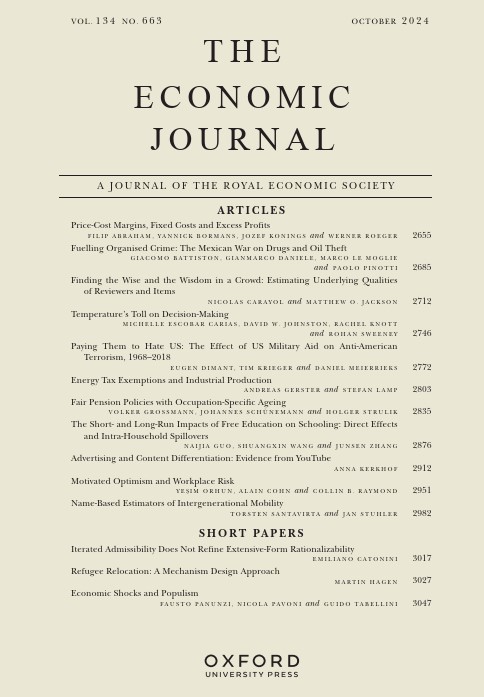
Measuring the Indirect Effects of Adverse Employer Behaviour on Worker Productivity – A Field Experiment
in: Economic Journal, No. 632, 2020
Abstract
We conduct a field experiment to study how worker productivity is affected if employers act adversely towards their co-workers. Our employees work for two shifts in a call centre. In our main treatment, we lay off some workers before the second shift. Compared to two control treatments, we find that the lay-off reduces the productivity of unaffected workers by 12%. We find suggestive evidence that this result is not driven by altered beliefs about the job or the management’s competence, but caused by the workers’ perception of unfair employer behaviour. The latter interpretation is confirmed in a prediction experiment with professional HR managers. Our results suggest that the price for adverse employer behaviour goes well beyond the potential tit for tat of directly affected workers.
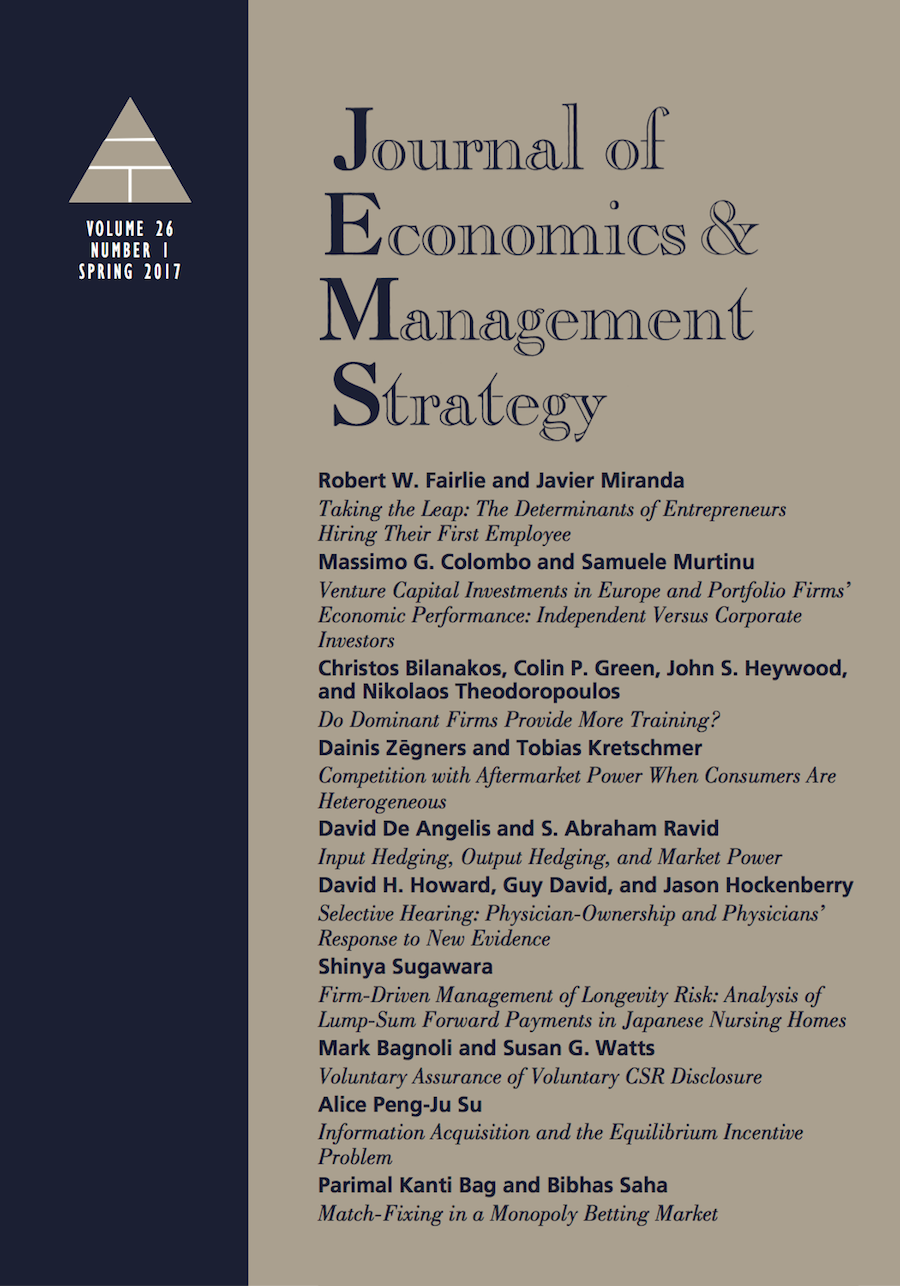
Wage Delegation in the Field
in: Journal of Economics and Management Strategy, No. 4, 2019
Abstract
By conducting a natural field experiment, we analyze the managerial policy of delegating the wage choice to employees. We find that this policy enhances performance significantly, which is remarkable since allocated wage premiums of the same size have no effect at all. Observed self‐imposed wage restraints and absence of negative peer effects speak in favor of wage delegation, although the chosen wage premium levels severely dampen its net value. Additional experimental and survey data provide important insights into employees' underlying motivations.
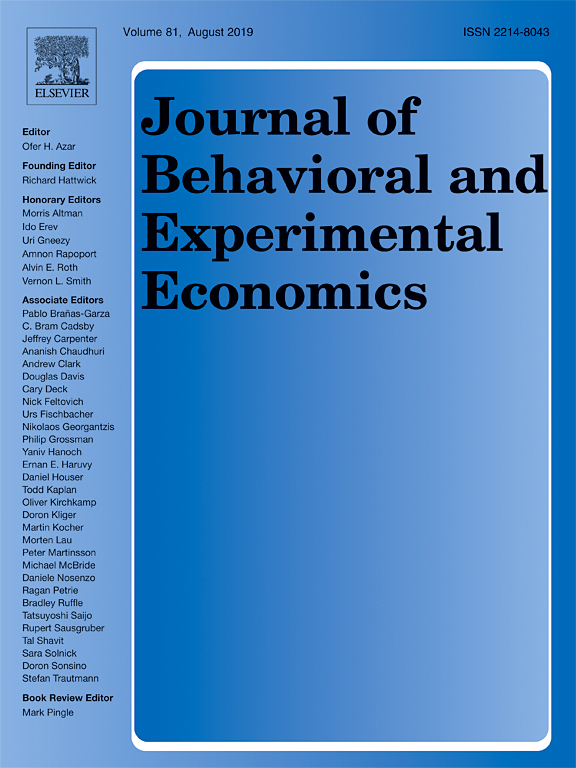
Gender Stereotypes still in MIND: Information on Relative Performance and Competition Entry
in: Journal of Behavioral and Experimental Economics, October 2019
Abstract
By conducting a laboratory experiment, I test whether the gender tournament gap diminishes in its size after providing information on the relative performance of the two genders. Indeed, the gap shrinks sizeably, it even becomes statistically insignificant. Hence, individuals’ entry decisions seem to be driven not only by incorrect self-assessments in general but also by incorrect stereotypical beliefs about the genders’ average abilities. Overconfident men opt less often for the tournament and, thereby, increase their expected payoff. Overall efficiency, however, is not affected by the intervention.
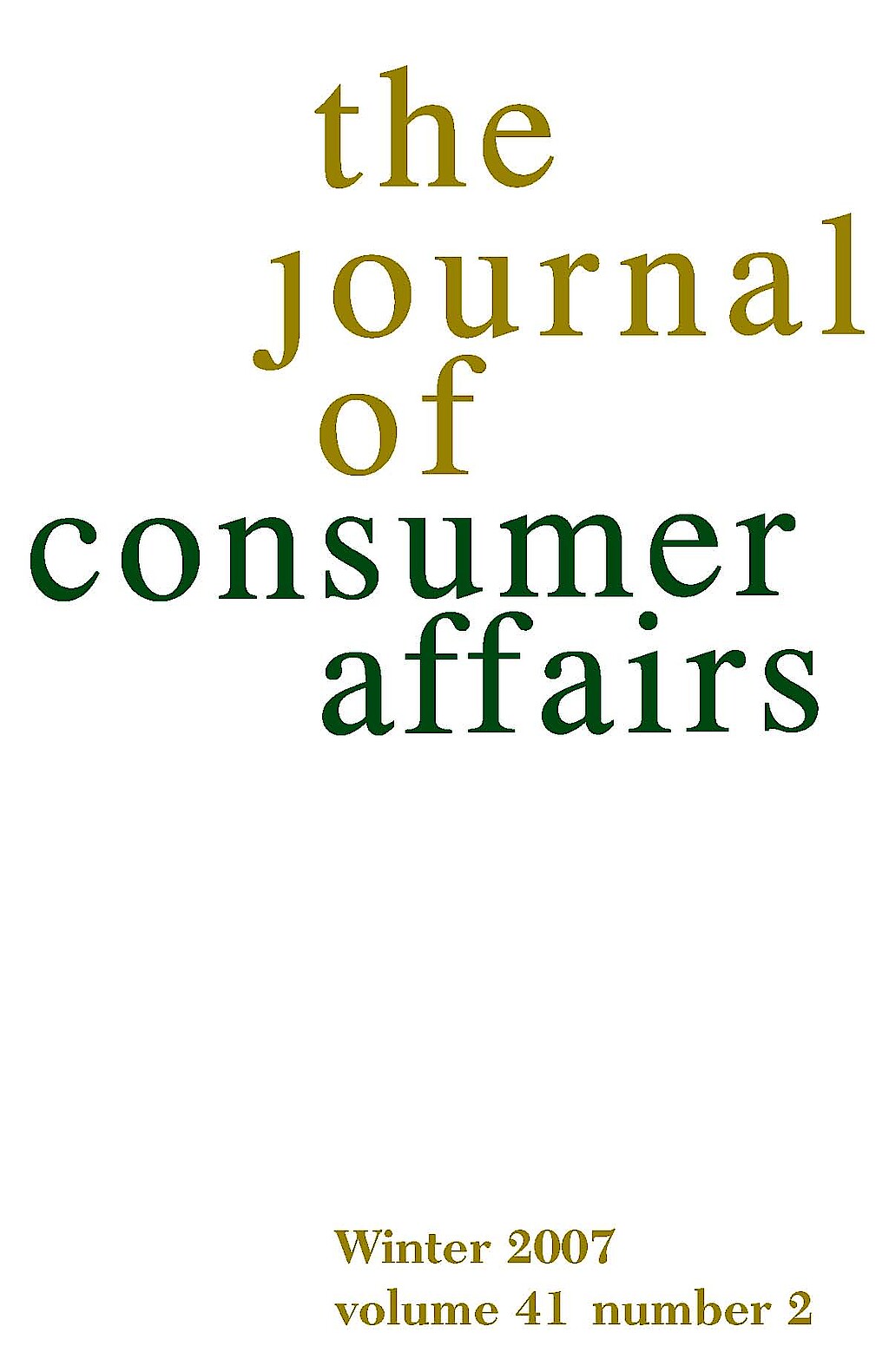
Financial Literacy and Self-employment
in: Journal of Consumer Affairs, No. 2, 2019
Abstract
In this paper, we study the relationship between financial literacy and self‐employment. We use established financial literacy questions to measure literacy levels. The analysis shows a highly significant and positive correlation between the index and self‐employment. We address the direction of causality by applying instrumental variable techniques based on information about maternal education. We also exploit information on financial support and family background to account for concerns about the exclusion restriction. The results provide support for a positive effect of financial literacy on the probability of being self‐employed. As financial literacy is acquirable, the findings suggest that entrepreneurial activities might be increased by enhancing financial literacy.
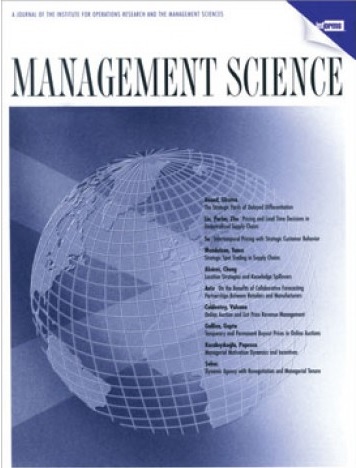
When the Meaning of Work Has Disappeared: Experimental Evidence on Employees’ Performance and Emotions
in: Management Science, No. 6, 2017
Abstract
This experiment tests for a causal relationship between the meaning of work and employees’ motivation to perform well. The study builds on an existing employer–employee relationship, adding realism to the ongoing research of task meaning. Owing to an unexpected project cancelation, we are able to study how varying the information provided about the meaning of previously conducted work — without the use of deception, but still maintaining a high level of control — affects subsequent performance. We observe a strong decline in exerted effort when we inform workers about the meaninglessness of a job already done. Our data also suggests that providing a supplemental alternative meaning perfectly compensates for this negative performance effect. Individual characteristics such as reciprocal inclinations and trust prompt different reactions. The data also show that the meaning of work affects workers’ emotions, but we cannot establish a clear relationship between emotional responses and performance.
Working Papers
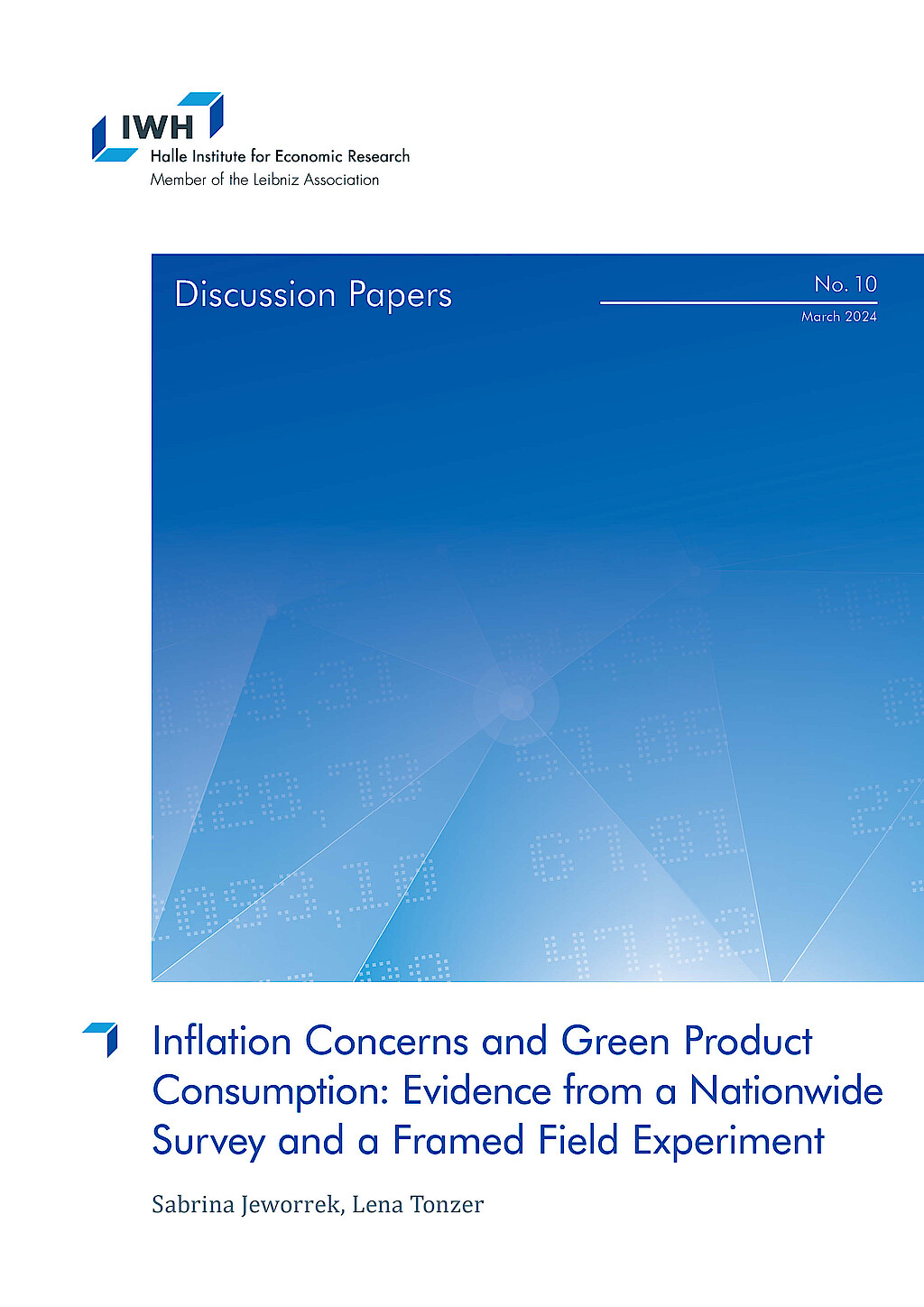
Inflation Concerns and Green Product Consumption: Evidence from a Nationwide Survey and a Framed Field Experiment
in: IWH Discussion Papers, No. 10, 2024
Abstract
Promoting green product consumption is one important element in building a sustainable society. Yet green products are usually more costly. In times of high inflation, not only budget constraints but also the fear that prices will continue to rise might dampen green product consumption and, hence, limit the effectiveness of exerted efforts to promote sustainable behaviors. To test this suggestion, we conducted a Germany-wide survey with almost 1,200 respondents, followed by a framed field experiment (N=500) to confirm causality. In the survey, respondents’ stated “green” purchasing behavior is, as to be expected, positively correlated with concerns about climate change. It is also negatively correlated with concerns about future inflation and energy costs, but after controlling for observable characteristics such as income and educational level only the correlation with concerns about future prices remains significant. This result is driven by individuals with below-median environmental attitude. In the framed field experiment, we use the priming method to manipulate the saliency of inflation concerns. Whereas sizably relaxing the budget constraint (i.e., by 50 percent) has no impact on the share of organic products in participants’ baskets, the priming significantly decreases the share of organic products for individuals with below-median environmental attitude, similar to the survey data.
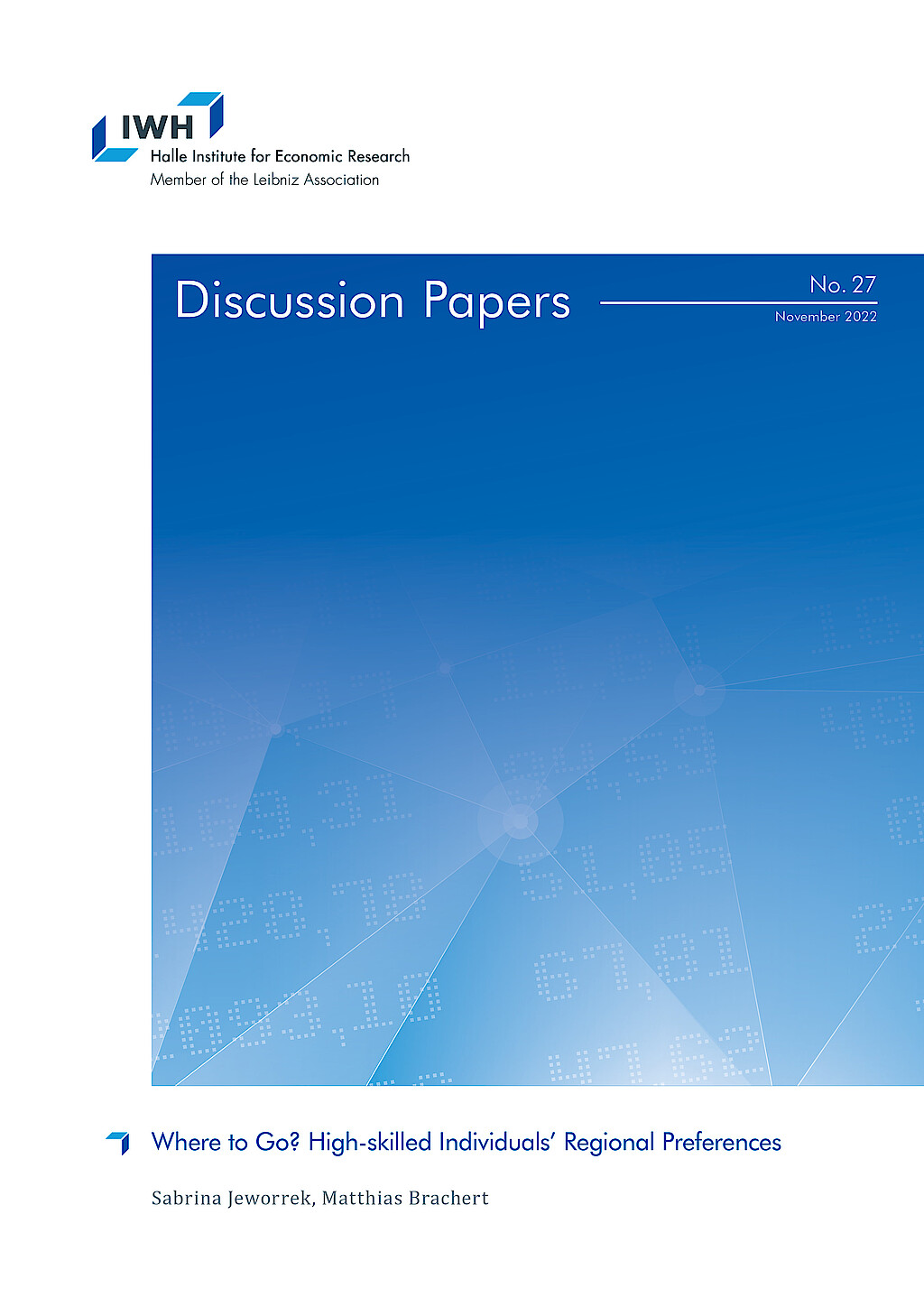
Where to Go? High-skilled Individuals’ Regional Preferences
in: IWH Discussion Papers, No. 27, 2022
Abstract
We conduct a discrete choice experiment to investigate how the location of a firm in a rural or urban region affects job attractiveness and contributes to the spatial sorting of university students and graduates. We characterize the attractiveness of a location based on several dimensions (social life, public infrastructure, connectivity) and combine this information with an urban or rural attribution. We also vary job design as well as contractual characteristics of the job. We find that job offers from companies in rural areas are generally considered less attractive. This is true regardless of the attractiveness of the region. The negative perception is particularly pronounced among persons with urban origin and singles. These persons rate job offers from rural regions significantly worse. In contrast, high-skilled individuals who originate from rural areas as well as individuals with partners and kids have no specific preference for jobs in urban or rural areas.
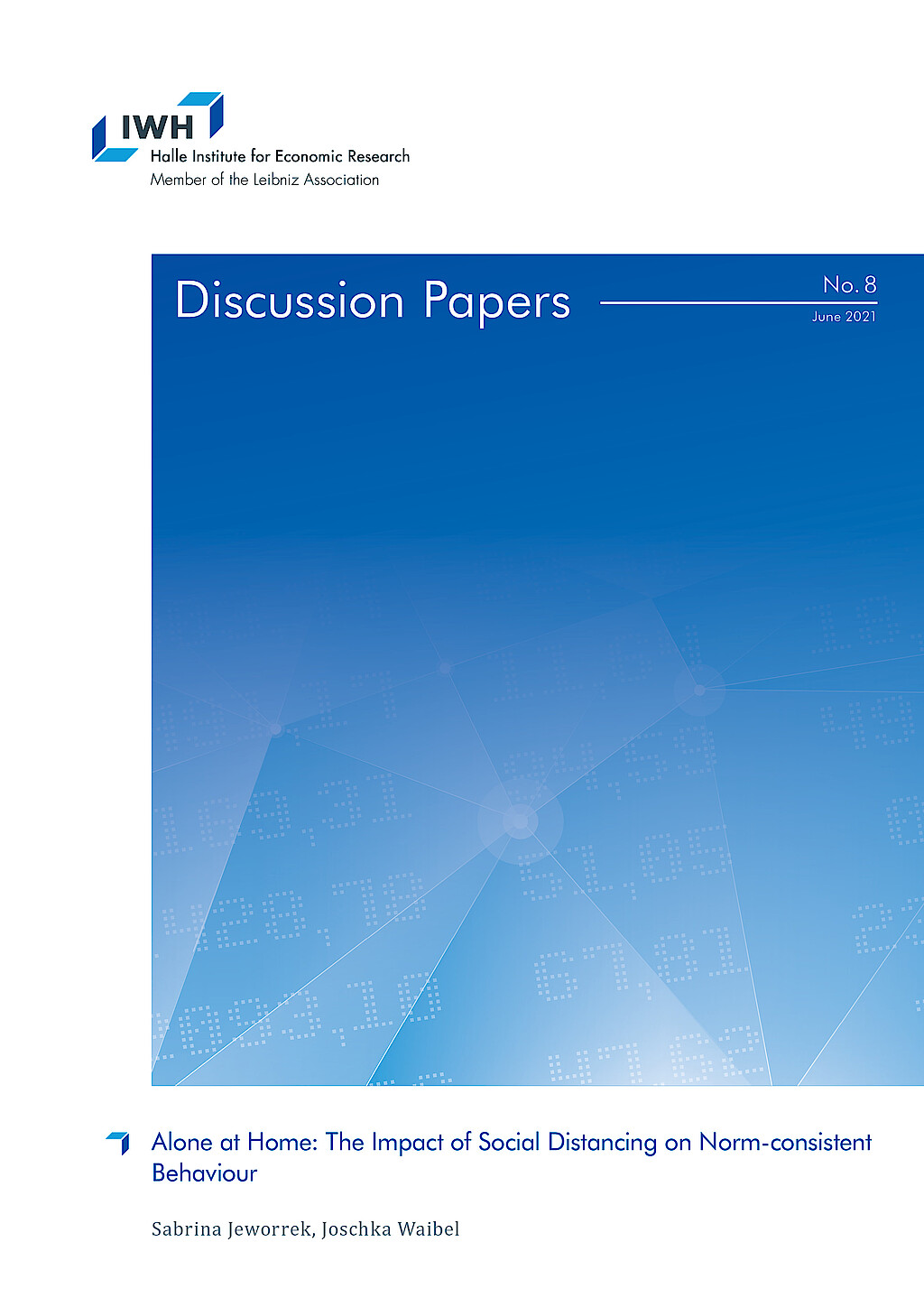
Alone at Home: The Impact of Social Distancing on Norm-consistent Behavior
in: IWH Discussion Papers, No. 8, 2021
Abstract
Around the globe, the COVID-19 pandemic has turned daily live upside down since social distancing is probably the most effective means of containing the virus until herd immunity is reached. Social norms have been shown to be an important determinant of social distancing behaviors. By conducting two experiments and using the priming method to manipulate social isolation recollections, we study whether social distancing has in turn affected norms of prosociality and norm compliance. The normative expectations of what behaviors others would approve or disapprove in our experimental setting did not change. Looking at actual behavior, however, we find that persistent social distancing indeed caused a decline in prosociality – even after the relaxation of social distancing rules and in times of optimism. At the same time, our results contain some good news since subjects seem still to care for norms and become more prosocial once again after we draw their attention to the empirical norm of how others have previously behaved in a similar situation.







